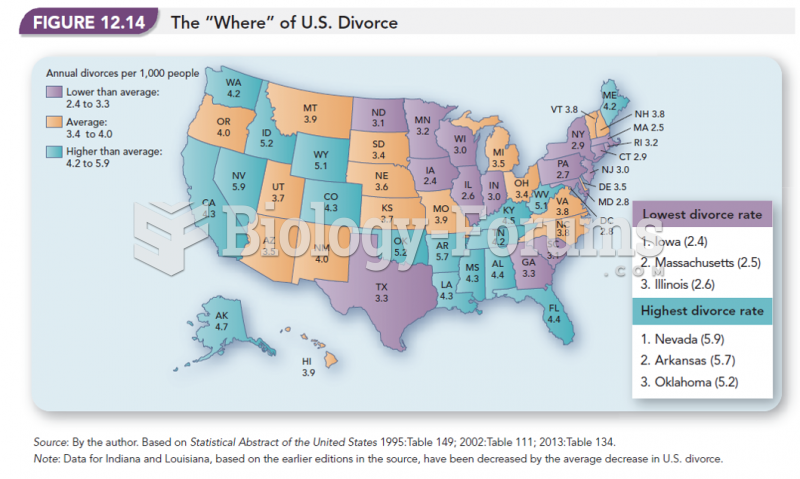|
|
|
In 1844, Charles Goodyear obtained the first patent for a rubber condom.
Green tea is able to stop the scent of garlic or onion from causing bad breath.
More than 30% of American adults, and about 12% of children utilize health care approaches that were developed outside of conventional medicine.
Illness; diuretics; laxative abuse; hot weather; exercise; sweating; caffeine; alcoholic beverages; starvation diets; inadequate carbohydrate consumption; and diets high in protein, salt, or fiber can cause people to become dehydrated.
ACTH levels are normally highest in the early morning (between 6 and 8 A.M.) and lowest in the evening (between 6 and 11 P.M.). Therefore, a doctor who suspects abnormal levels looks for low ACTH in the morning and high ACTH in the evening.







